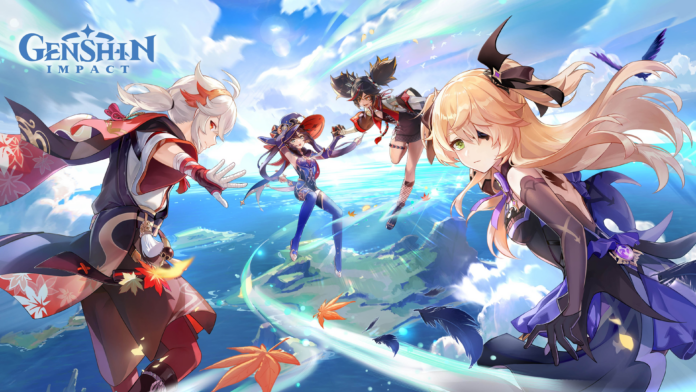The maker of the video game Genshin Impact has agreed to pay $20 million and to block children under 16 from making in-game purchases without parental consent to settle Federal Trade Commission allegations the company violated a children’s privacy law and deceived children and other users about the real costs of in-game transactions and odds of obtaining rare prizes.
“Genshin Impact deceived children, teens, and other players into spending hundreds of dollars on prizes they stood little chance of winning,” said Samuel Levine, Director of the FTC’s Bureau of Consumer Protection. “Companies that deploy these dark-pattern tactics will be held accountable if they deceive players, particularly kids and teens, about the true costs of in-game transactions.”
A complaint filed by the Department of Justice upon referral from the commission alleged that Singapore-based Cognosphere Pte. Ltd and its California-based subsidiary Cognosphere LLC, which do business in the United States as HoYoverse, actively marketed Genshin Impact to children and collected personal information from them in violation of the Children’s Online Privacy Protection Rule (COPPA).
The complaint further charged that HoYoverse deceived players about the odds of winning particular sought-after “five-star” loot box prizes and how much it would cost to open loot boxes to win the prizes.
It also alleged that the confusing virtual currency system players had to navigate to open loot boxes and the marketing and promotion tactics used to entice them to open loot boxes were unfair to children and teenagers.
Popular among children and teens, Genshin Impact is free to download but has generated significant revenue through the sale of in-game virtual currency and other content. Players advance in the game by collecting virtual heroes, forming a team and using heroes’ abilities to complete tasks.
Five-star heroes are the most desirable to collect, given their powers, and they can only be obtained by opening loot boxes, which players can purchase using virtual currency.
The complaint alleges that Genshin Impact’s purchasing process obscures the reality that consumers commonly must spend large amounts of real money to obtain “five-star prizes” and that some children have spent hundreds or even thousands of dollars to win them. The complaint alleges that the system is challenging and confusing, particularly for children and teens.
Players must exchange real dollars for bundles of virtual currency that then have to be re-exchanged multiple times to open loot boxes, with exchange rates in unusual denominations.
This complicated system, according to the complaint, misleads consumers about the amount of money that players spend on loot boxes on an ongoing basis and the amount of money that players would likely need to spend to obtain certain prizes.
HoYoverse drives consumer demand for Genshin Impact’s loot boxes through several promotional channels inside and outside of the game, which advertise that desirable prizes will be available only on a limited basis, according to the complaint.
This includes using virtual in-game “Event Banners” to promote these limited-time prizes and social media influencers to glamorize the excitement of opening loot boxes.
Genshin Impact uses anime-style cartoon graphics, bright and colourful animation, and several characters who have the speech or appearance of children to appeal to children.
HoYoverse has spent millions of dollars hiring social media influencers—many of whom are popular with children—to promote Genshin Impact to their respective audiences on social media platforms, including YouTube, TikTok, and the video game streaming site Twitch.
The complaint alleges that the company’s Event Banners and influencer campaigns give players the impression that they will have better odds of obtaining the five-star prize being promoted than they have in reality.




